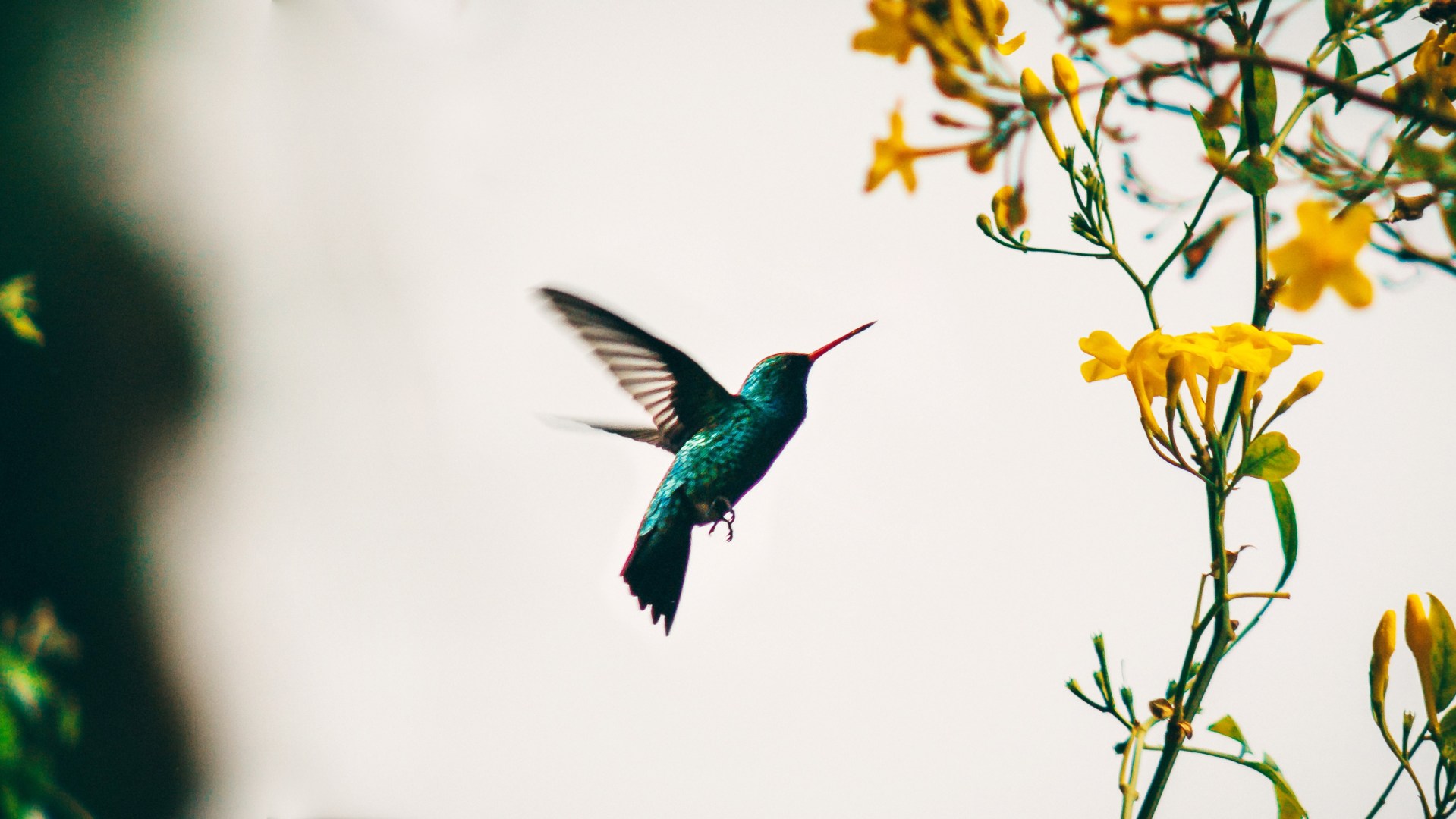A few years ago, I sat on the front porch of an old farmhouse in Vermont writing a new song with two friends. We sipped coffee, looking out over a summer field and testing lyrics that we scribbled in our notebooks. Above us, at the corner of the house, hung a hummingbird feeder. Tiny winged visitors stopped by intermittently to eavesdrop on our song while sipping nectar from the glass globe.
Hummingbird wings move at about 50 beats per second. But when they fly, hummingbirds can appear completely motionless. A miracle of fitness and form, God made these creatures to be a delicate display of paradox: They are still and active at the same time.
These birds are a moving metaphor for the kind of trust that God outlines in Isaiah 30:15: “You will be delivered by returning and resting; your strength will lie in quiet confidence” (CSB throughout). When I think of God’s grace at play in my own life, my most successful moments happen when I hold steady at the center. Confidence is not found in productivity, but in quietness of heart.
We are not measured by our success. We are simply called to faithfully rely upon God for the outcome of our efforts. “Such is the confidence we have through Christ before God. It is not that we are competent in ourselves to claim anything as coming from ourselves, but our adequacy is from God” (2 Cor. 3:4–5).
But the hummingbird metaphor extends beyond the physics of wings. By design, hummingbirds, like many migratory birds, accomplish great feats of travel by trusting that God will guide them where he has hard-wired them to go. They take their GPS coordinates from the moon, the weather changes, and their God-given intuition.
The coronavirus pandemic scrambled our life-coordinates as school went virtual, meet-ups with friends slowed, and church became a livestream. Our lives have been separated into pieces—as my middle-school-age daughter and I were discussing recently—like one of those “best friends” necklaces shaped like a broken heart. We feel lost and incomplete, holding one half of the heart around our neck and hoping to put it back together again soon.
Colossians 1:19–20 speaks directly to this sense of wandering: “For God was pleased to have all his fullness dwell in him, and through him to reconcile everything to himself, whether things on earth or things in heaven, by making peace through his blood, shed on the cross.” God is pulling the broken pieces of our lives back to wholeness.
He does not always do this in ways we expect. And that is one of the miracles of grace: God doesn’t just hand back the two sides of the necklace, nor does he simply return us to something we have lost. Instead, he himself restores and reconciles all things to himself. As he leads birds hundreds of miles year after year to return to the places where they belong but could never find on their own, he continually brings us to something new, giving us a hope and a future we never could have imagined.
He doesn’t promise that the journey will be peaceful. Instead, “he is our peace” (Eph. 2:14). Three years after that day spent song-writing in Vermont, I was working on an album in Nashville when the pandemic halted recording. For several years I had been gathering songs for this project, songs to protest anxiety, songs of comfort over fear. It turned out to be a timely effort as the other musicians and I were all faced with the sudden challenges of illness and isolation.
As we worked, I stumbled on a work-tape recording of a song I had written called “Patient Kingdom.” I had forgotten all about the song. We included it at the last minute, and it became the album’s title, a divinely orchestrated surprise. Recording Patient Kingdom long-distance across four states produced something in the end more beautiful than we could have known.
Our plans are not like his plans. As the hummingbird moves, his wings are invisible to us. So too the work of God is often hard to see in the moment, but nevertheless something remarkable is happening. This is what the Lord says: “Look, I am about to do something new; even now it is coming. Do you not see it?” (Isa. 43:19).
Sandra McCracken is a singer-songwriter who lives in Nashville. Follow her on Twitter @Sandramccracken.










